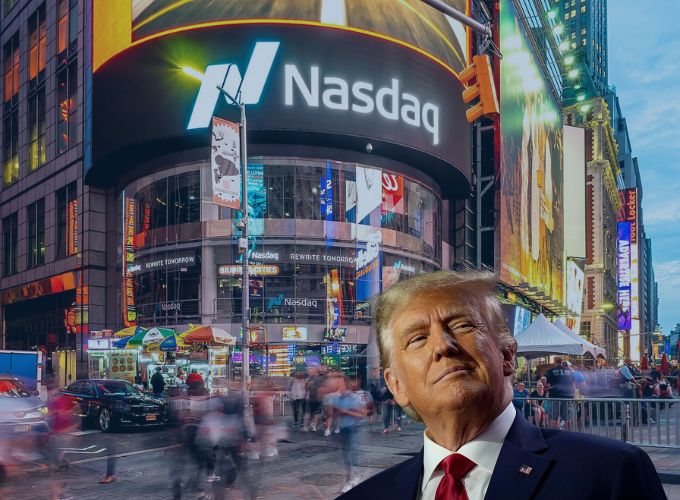Hailey Borg
1. Anticipation of Donald Trump’s Presidency and Economic Policies:
The global economy is bracing for significant changes with the impending inauguration of U.S. President-elect Donald Trump. Central banks, including the U.S. Federal Reserve, are adopting a cautious stance on future rate cuts amid economic uncertainty. Trump’s proposed policies, such as tariffs, tax reductions, and immigration controls, are influencing economic forecasts and market behaviors.
2. Surge in Global Mergers and Acquisitions (M&A):
Under the expectation of a more business-friendly environment with Trump’s presidency, there has been a notable increase in megamergers. The value of global M&A rose by 11% this year, surpassing the $3 trillion mark, with large deals, especially those over $5 billion, increasing by 19%. This trend reflects corporate optimism about reduced regulatory scrutiny and favorable economic policies.
3. Dominance of UBS and Goldman Sachs in Investment Banking:
In Australia, UBS and Goldman Sachs have led advisory roles for investment banking and M&A. UBS secured the top position for Australian investment banking fees, while Goldman Sachs led in announced deals, including significant transactions like the $24 billion sale of AirTrunk to Blackstone. This highlights the pivotal role of major financial institutions in facilitating large-scale financial transactions.
4. Boom in Private Markets M&A Activity:
Asset managers have been actively pursuing acquisitions to enhance their capabilities in private markets. BlackRock, for instance, led significant deals, including the $12.5 billion purchase of Global Infrastructure Partners. This trend is projected to continue into 2025, driven by strategic growth objectives and the flourishing private markets sector.
5. Global M&A Deal Volumes Projected to Exceed $4 Trillion:
Bankers forecast that global M&A deal volumes will surpass $4 trillion in 2025, driven by pro-business policies from the incoming U.S. administration. The total value of mergers and acquisitions increased by 15% to $3.45 trillion in 2024, rebounding from a decade-low last year. This optimism is tempered by potential challenges, including higher interest rates and geopolitical uncertainties.
6. Shift in Global Economic Focus:
The year 2024 has been characterized by a shift in economic focus, moving away from inflation as the primary macroeconomic variable and concentrating on activity and growth data. This transition has led to a greater emphasis on fiscal policy over monetary policy, with governments taking a central role in economic direction through the management of revenues and expenditures.

7. Resilience of Global Stock Markets Amid Central Bank Liquidity Drainage:
Global stocks have surged despite significant central bank liquidity drainage. Looking forward to 2025, global growth is expected to moderate amid U.S. trade policy uncertainties, prompting key economies like China and Europe to loosen monetary policies. The Federal Reserve is also trimming interest rates and could end its quantitative tightening program, which has reduced its balance sheet by $2 trillion since mid-2022.
8. IMF’s Projection of Sluggish Global Growth:
The International Monetary Fund (IMF) has reported that while the global economy has achieved a soft landing, growth is expected to decelerate slightly to 3.2% in 2024 and 2025 from 3.3% in 2023. Inflation is also projected to decline, with interest rates beginning to ease in the US and the eurozone. Despite these positive indicators, the IMF warns that weak growth threatens global economic, social, and environmental stability.
9. BlackRock’s Assertion of a Fundamental Shift in the Global Economy:
BlackRock has announced that the global economy has exited the traditional ‘boom and bust’ cycle, experiencing a fundamental shift due to the emergence of major transformative forces. Factors such as AI technologies, the move to net zero carbon emissions, geopolitical fragmentation, demographic changes, and the digitization of finance are reshaping the economy’s long-term trajectories.
10. IMF’s Announcement on the Global Fight Against Inflation:
The International Monetary Fund (IMF) has reported that the global battle against inflation is nearly won, with significant reductions in inflation rates projected for the coming years. The IMF expects worldwide inflation to drop from 6.7% last year to 5.8% this year and to 4.3% in 2025. In wealthy countries, inflation is anticipated to fall to central bank targets of 2% by 2025.
Predictions for 2025:
Continuation of M&A Activity:
The momentum in mergers and acquisitions is expected to persist, with global deal volumes projected to exceed $4 trillion. This surge will be driven by pro-business policies, lower corporate taxes, and reduced regulatory scrutiny under the new U.S. administration.
Moderate Global Economic Growth:
Global growth is likely to be around 3% in 2025 and 2026, with tariff and immigration policies beginning to slow the U.S. economy late next year, and China’s underperformance restraining emerging markets.
Normalization of Inflation Rates:
Inflation continues to normalize, easing a key concern for policymakers and investors, but progress may slow and may vary across countries. In the euro area, core inflation is expected to slow to
You Might Also Like

Latest Article
IOM and Bolt join forces to foster better integration support for migrants in the platform economy in Malta
The International Organization for Migration (IOM) and Bolt, a leading European shared mobility and delivery platform, have signed a global agreement aimed at providing integration support for migrants working in the mobility and delivery sectors. The partnership, ‘Bridging the Gap – Integrating Migrants’, will start with a pilot project in Malta that will serve as … Continued
|
1 July 2025
Written by Hailey Borg

MUT And ITS Secure New Collective Agreement For Academic Staff
|
30 June 2025
Written by MeetInc.

May Unemployment Down By 14% Year-on-Year, Now At 1,050
|
30 June 2025
Written by MeetInc.











